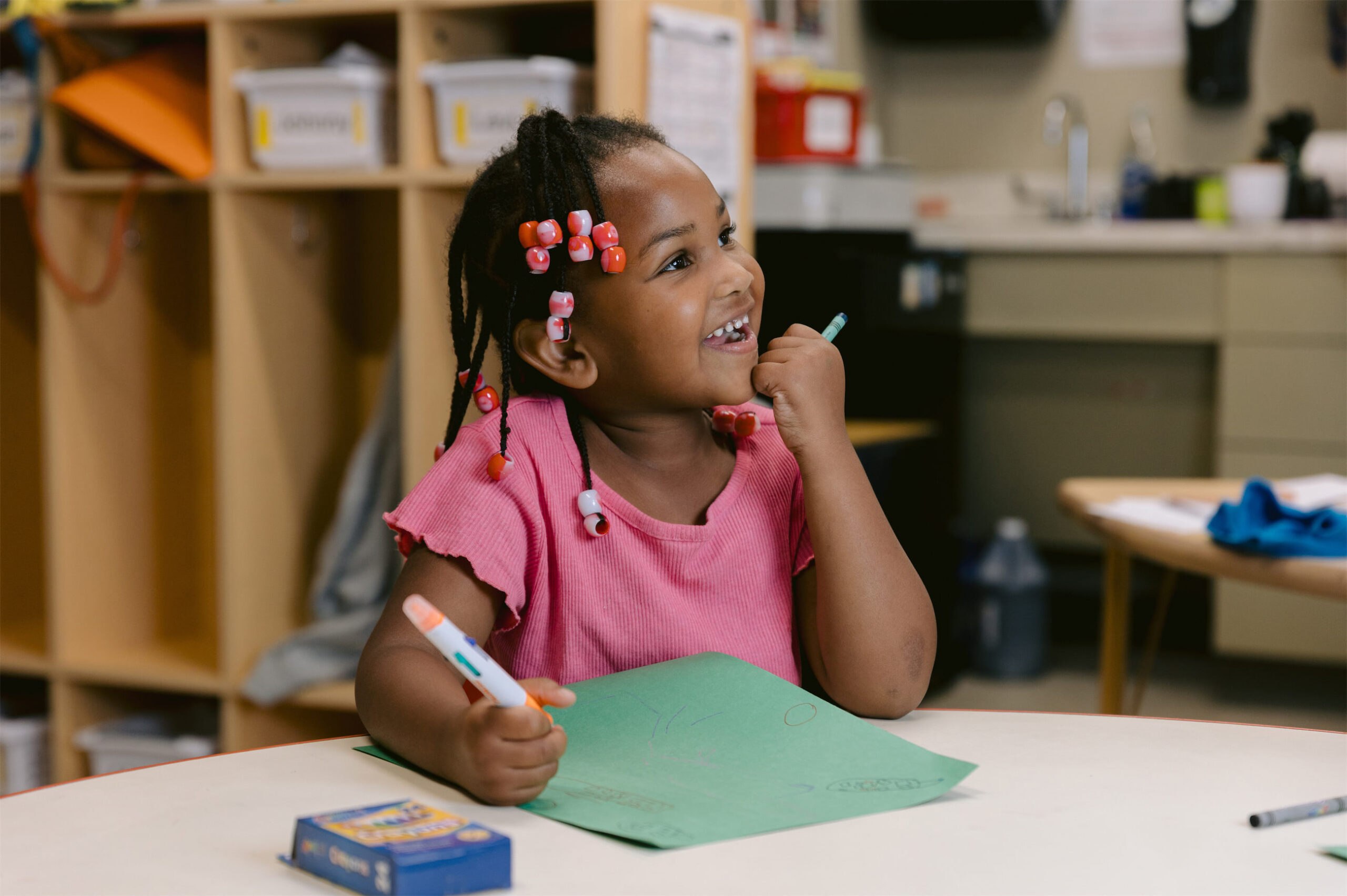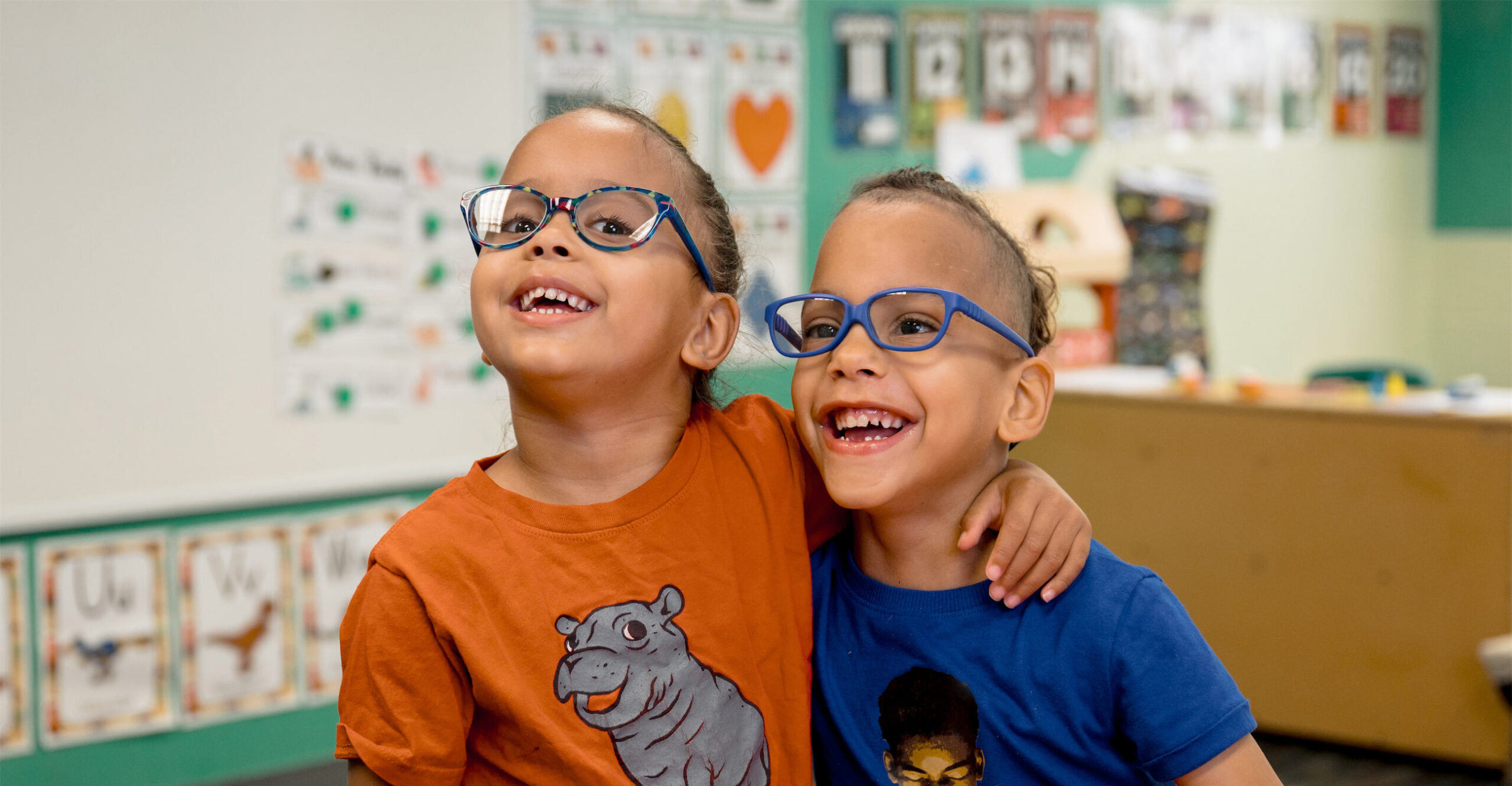Talking & Reading
- Smiling, cooing, squealing, laughing, babbling
- Gestures with arms & waves goodbye
- Calms when hearing familiar voices
You can help your child be ready for Kindergarten and beyond by working on skills with them. Here are some helpful and easy ways to engage with your child!
Movement helps with strong brain development. Supervised floor time in a safe and friendly environment can help your kids get comfortable with new movements. Use tummy time or floor time as a way to create a lifelong bond with your child.
Remember: Growth is a process. If you have any concerns about your child’s development, talk with your doctor or pediatrician.
Fill out our eligibility screener to learn about all the resources you qualify for based on your needs.

